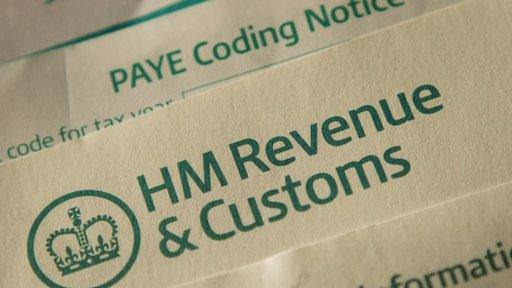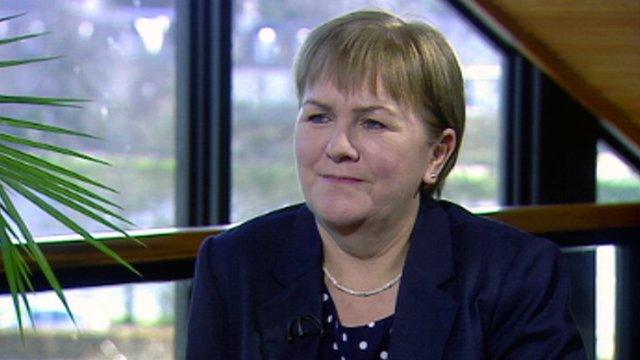Taxing questions
- Published

Scottish Labour has been discussing what could be in the Scottish purse in the future
Labour conference in Inverness - and there is much talk of the party's devolution commission. But it is almost all behind the scenes here at the Eden Court and it is notably tentative.
If you were listening to the wireless yesterday morning, you will have heard me blethering on about it. But for those few who, unaccountably, had something else to occupy their time, perhaps a brief recap might help. (The loyal listeners can use the interval to make tea or put the cat out.)
Anyway, Labour has a devolution commission, external. It said there was a very strong case for devolving the whole of income tax to Holyrood. It backed the devolution of air passenger duty and vehicle excise duty. But it was agin the devolution of corporation tax, oil revenues or welfare.
OK? Up to speed? Cat despatched? Fine. Here in Eden, they are pondering the potential impact of this plan upon the devolutionary garden. Some are apple-cheeked and content. Others scent serpent.
The concerns? They vary. Some are, frankly, grumpy at the way the launch was handled. Well, there we are and there we go. Such concerns tend to dissipate very speedily indeed.
Some MPs are fretting about the impact upon their status - and hence Scotland's voice in the UK Parliament. If income tax is devolved, some argue, then would there not be pressure to cut the number of MPs from Scotland at Westminster, in parallel with the reduced remit?
Others rebut that, arguing that only full fiscal autonomy would demand such a change. Others say it is not worth worrying about, at least in terms of a public debate.
'A new offer'
Then there are those who complain that enhanced devolution is not or should not be Labour's prime priority. They claim to detect in Ed Miliband's speech a stress upon the primacy of voter concerns with the economy and social matters, as relevant in Inverness as in Ipswich, to borrow his formula.

UK leader Ed Miliband embraces Scottish leader Johann Lamont
The big union, Unison, for example, has argued that Labour should first decide what it wants to do with devolved power - placing an emphasis upon social cohesion. Only then, should there be talk about further devolution.
Against that, it is said that Labour must have an offer to counter independence. A new offer. They insist that Ed Miliband and his Shadow Cabinet understand that perfectly. They just do not want, at this stage, to major upon a proposition which is uncertain.
Then there are those who fret, seriously, about the practical implications. If income tax is devolved, would there be pressure to cut Scotland's funding, to scrap the Barnett Formula? Would it end up costing Scotland? Would it undermine the fundamental structure of spending allocation across the UK?
That is the real concern. To be fair, it is highlighted in the commission report itself. It is recognised - and openly acknowledged - by Johann Lamont. It is the core anxiety of those MPs - including front benchers - who harbour disquiet.
Those who counter that - and they include some big names - say that devolving income tax would be a serious, top-line proposition which would give Holyrood the fiscal responsibility to match its spending powers. It could be done, they insist, without disturbing the entirety of the financial structure across the UK. If so, say the critics, then maybe fine. But only maybe.
Another point. The talk here in Inverness is of a Labour offer. Not a cross-party offer. Not a pan-Unionist plan. This is not a contribution to Calman Mark II (even before the Act based upon Calman is implemented.)
Indeed, as one senior figure told me, Labour's offer must differ from the Tories - as well as the SNP, not least because Labour will be challenging the Tories in Scotland and elsewhere at the UK General Election in 2015.
Work to be done.
- Published18 April 2013

- Published19 April 2013

- Published19 April 2013
